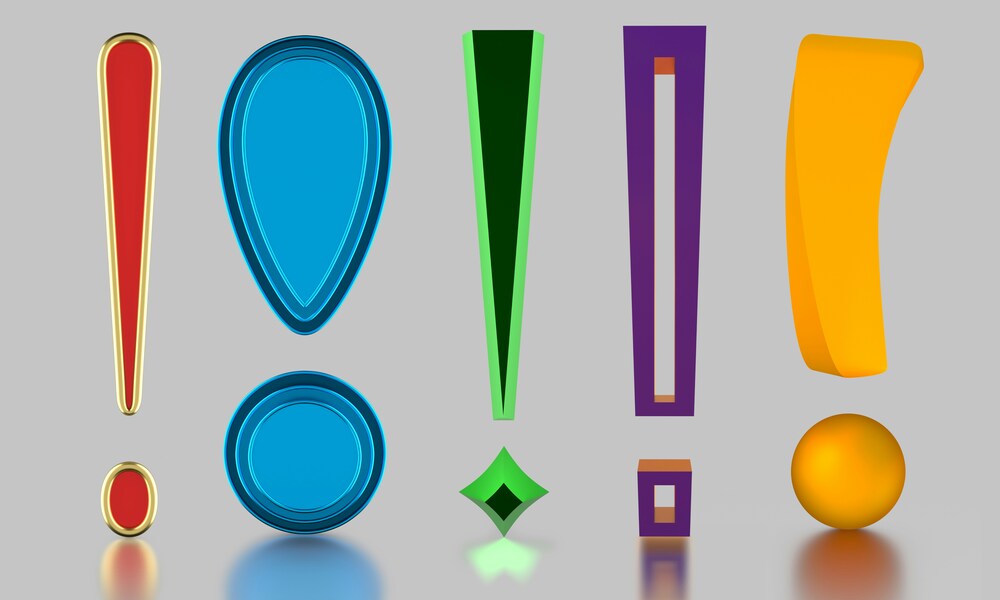Recent Breakthroughs in Quantum Computing Technology
Quantum computing is transforming the tech landscape. It promises to solve problems beyond the reach of classical computers.
Recent breakthroughs are pushing the boundaries of what's possible. These advancements are not just theoretical; they have real-world implications.
Major players like IBM, D-Wave, and IonQ are leading the charge. Their innovations are setting the stage for a quantum revolution.
Quantum systems are becoming more sophisticated. This progress is crucial for industries like finance, healthcare, and logistics.
The future of quantum computing is bright. By 2025, we expect even more groundbreaking developments.
The Quantum Revolution: Why Quantum Computing Matters
Quantum computing represents a paradigm shift in computational capability. Traditional computers operate using bits, whereas quantum computers use qubits. This fundamental difference allows for vast parallelism and speed.

Understanding why quantum computing matters involves appreciating its potential impact. Industries ranging from cryptography to pharmacology stand to benefit. Faster processing leads to breakthroughs in areas previously thought intractable.
Consider the following advantages of quantum computing:
- Unprecedented processing power
- Enhanced data handling capabilities
- Improved problem-solving for complex calculations
Research in this field is driven by both curiosity and necessity. As data grows exponentially, the need for quantum solutions becomes urgent. Quantum computing is not just an academic exercise but a growing industry with tangible benefits.
The promise of quantum technology extends far beyond processing speed. It promises new ways to model natural phenomena and optimize intricate systems. This revolution holds the key to tackling global challenges with newfound precision and efficiency.
Key Quantum Developments and Breakthroughs in 2024-2025
Recent years have seen quantum computing transitioning from theoretical concepts to practical applications. Significant breakthroughs are setting the stage for future innovations. As we approach 2025, these developments offer exciting possibilities.

Quantum algorithms have undergone substantial improvements, boosting computational efficiency. They're essential in making quantum systems more practical and error-tolerant. This progress is crucial for deploying quantum solutions across various industries.
Investment in quantum technology continues to rise, driven by both private and public sectors. Companies are racing to be the first to achieve milestones. Their efforts are accelerated by cutting-edge research and development.
Key breakthroughs in quantum computing chip advancements have emerged. These innovations are critical for increasing processing power and reducing error rates. New materials and designs are leading to more stable and reliable quantum systems.
Collaboration between academia and industry is fostering significant advancements. Joint efforts in research are addressing challenges like scalability and integration. This collaboration is essential for pushing the boundaries of what's possible with quantum technology.
Consider these recent quantum developments:
- Enhanced qubit stability and coherence
- Advancements in quantum error correction techniques
- Breakthroughs in ion trap technology for better control
Quantum breakthroughs are not only technical triumphs; they're also affecting global economic perspectives. Understanding the potential applications of these advancements can redefine industries. As these breakthroughs unfold, they could revolutionize the technological landscape, offering new opportunities for future exploration and implementation.
Quantum Hardware: Chips, Qubits, and System Innovations
Quantum hardware is the backbone of computational advancements. Recent innovations are enabling more robust systems. These developments focus on both scalability and practicality.

One major area of focus is quantum chips. These chips are crucial for processing power. Advancements in their architecture enhance both speed and efficiency. Researchers are continually seeking ways to optimize them for better performance.
Qubits, the fundamental units of quantum information, are central to system improvements. Innovations in qubit design aim to increase reliability and coherence. Maintaining qubit stability is essential for reducing computational errors.
System innovations go beyond individual components. Engineers are working on holistic designs that integrate multiple technologies. These designs aim to create seamless operations in practical quantum systems.
Consider these areas of quantum hardware advancements:
- Improved quantum chip designs
- Enhanced qubit coherence and stability
- Integrated system architecture for holistic functionality
The evolution of quantum hardware is driven by interdisciplinary collaboration. Such collaboration brings together experts from physics, engineering, and computer science. This teamwork is crucial for overcoming current limitations and pushing the boundaries of quantum computing. As hardware continues to improve, the future of quantum technology looks increasingly promising, setting the stage for transformative applications across numerous fields.
Leading Players: IBM, D-Wave, IonQ, and Industry Momentum
The quantum computing sector is bustling with activity, led by pioneers like IBM, D-Wave, and IonQ. Each player brings something unique to the table. Their contributions are accelerating the quantum race.

IBM has invested heavily in both hardware and software innovations. Their focus includes building scalable quantum systems. They aim to create frameworks that facilitate easier quantum development. IBM's efforts are shaping the landscape of quantum technology.
D-Wave focuses on a different approach with its annealing technology. This method is suitable for optimization problems. Recent advancements have boosted their stock, reflecting market confidence in their developments.
IonQ is gaining momentum with its work on ion trap technology. Their approach promises high fidelity and longer qubit coherence times. IonQ is pushing boundaries to enable practical, error-resistant quantum systems.
Key industry highlights include:
- IBM's focus on scalable quantum systems
- D-Wave's advancements in annealing technology
- IonQ's progress in ion trap technology
The momentum from these companies drives quantum research forward. Industry breakthroughs are not isolated; they influence tech giants globally. This momentum is critical as we inch closer to quantum supremacy, paving the way for transformative shifts across various industries.
Quantum Algorithms and Software Advancements
Quantum algorithms represent the core of quantum computing's potential. They are designed to perform specific tasks more efficiently than classical algorithms. Recent advancements have bolstered these capabilities, addressing computational challenges.
These algorithms are being refined to optimize performance. Developers are working to reduce errors and enhance efficiency. The goal is to leverage quantum systems for solving complex problems.
Key software advancements include improvements in quantum simulators. These tools allow researchers to test algorithms in controlled environments. Progress in software development is pivotal, accelerating practical applications across different sectors.
Highlights of recent algorithm and software advancements:
- Enhanced efficiency in quantum algorithms
- Reduced computational errors
- Progress in quantum simulators development
Advancing quantum software complements hardware innovations, setting the stage for widespread adoption. With improvements in both areas, the promise of practical quantum applications appears closer than ever. The synergy between these advancements fosters a robust environment for future breakthroughs.
Real-World Quantum Applications: From Finance to Healthcare
Quantum computing is beginning to reshape various industries with its potential. In finance, it offers solutions for risk analysis and portfolio optimization. Quantum algorithms can handle massive datasets more efficiently than traditional methods.
In healthcare, quantum technology is paving new paths. It promises advancements in drug discovery by simulating complex molecular interactions. This could drastically reduce the time and cost of developing new treatments.
Another promising area is logistics. Quantum systems optimize supply chain operations, resulting in cost savings and enhanced efficiency. Better route planning and resource allocation are made possible by advanced quantum models.
Key real-world applications include:
- Financial services: Risk analysis and portfolio optimization
- Healthcare: Drug discovery and personalized medicine
- Logistics: Supply chain and resource management

As quantum computing expands, its applications will grow, reaching even more industries. The groundwork laid today is vital for unlocking this technology's full potential. As more sectors explore quantum solutions, the scope of its impact continues to widen.
Overcoming Challenges: Error Correction, Scalability, and Integration
Quantum computing is not without its hurdles. One major challenge is error correction. Quantum bits, or qubits, are prone to errors due to their fragile nature. Researchers are developing new methods to detect and correct these errors to improve reliability.
Scalability is another significant concern. Current quantum systems are limited in the number of qubits they can effectively manage. Expanding this capability is crucial for practical applications. Teams are working on solutions to scale up quantum systems to make them viable for larger problems.
Integration poses further challenges. Combining quantum technology with existing infrastructure requires careful planning. Bridging this gap will determine how smoothly quantum systems can be adopted across industries.
Key challenges include:
- Error correction: Reducing computational errors
- Scalability: Increasing the number of qubits
- Integration: Seamlessly incorporating quantum technology into current systems
As these challenges are addressed, the path to functional quantum computing becomes clearer.
The Quantum Future: Predictions for 2025 and Beyond
The future of quantum computing holds immense promise. By 2025, we expect significant advancements that could redefine many sectors. Researchers forecast breakthroughs in quantum algorithms, enhancing processing speeds and accuracy.
Quantum technologies are poised to become a mainstream component of industries. As quantum computing matures, applications in areas like logistics and finance will flourish. The quantum future promises tools to tackle challenges previously deemed insurmountable.
Public and private investments will accelerate quantum progress. With funding increasing, innovation in quantum hardware and software will rise. Collaborative efforts among global entities will further push boundaries and ensure steady advancement.
Looking ahead, the growth in quantum technology could lead to:
- Revolutionary progress in artificial intelligence
- New encryption methods altering cybersecurity
- Advancements transforming drug discovery and healthcare

As we approach 2025, these developments will shape a world where quantum computing is integral. This evolving landscape promises a future rich with transformative technology.
Conclusion: The Road Ahead for Quantum Technology
Quantum computing stands on the brink of a new dawn. As innovations continue, industries worldwide await its full potential. Future progress hinges on overcoming challenges like error correction and scalability.
Collaboration among tech giants and startups will be crucial. With combined efforts, breakthroughs in both hardware and algorithms are within reach. Such advancements promise to unlock new possibilities and redefine technological landscapes.
The journey of quantum technology is far from over. As we navigate forward, the emphasis on ethical use will become more significant. With continued dedication and investment, quantum computing is set to transform our world profoundly.






